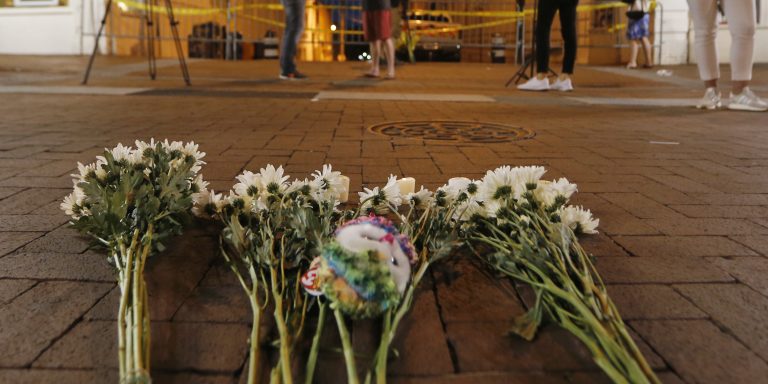INTELBRIEF
January 11, 2018
IntelBrief: Downplaying U.S. Domestic Terrorism

- On January 3, U.S. authorities unsealed a federal indictment charging an alleged armed white supremacist with terrorism, after he used emergency brakes to stop an Amtrak train in October 2017.
- Unlike plots linked to foreign jihadist groups, this case proceeded without White House comments or publicity.
- The U.S. government has a long history of downplaying cases of domestic terrorism that involve suspects linked to white supremacist ideologies.
- There is no U.S. statute that criminalizes material support for domestic groups advocating terrorism, as there is for material support of foreign terrorist groups.
The hype and hysteria that characterize U.S. discussions of the dangers of al-Qaeda or the so-called Islamic State are rarely evident when the terrorist threat stems from white supremacist ideology. Downplaying this kind of domestic terror has been a consistent theme in U.S. history, from lynchings in centuries past, to the violent threats issued by some white supremacist groups today. The differences in how these sorts of cases are handled—both politically and within the U.S. justice system—can be striking.
On the criminal level, when cases are allegedly connected to a foreign terrorist group, U.S. officials can go beyond just using available resources and demand the creation of new resources to manage the issues at hand. Politically, cases involving foreign terrorist groups are often treated as existential threats, regardless of whether planned attacks are inspired or directed from the outside. Entire communities may be stigmatized, with politicians and media figures demanding to know how the alleged terrorist was radicalized and whether the people around him knew of—and concealed—the threat.
Domestic terror cases, with no connection to jihadist groups or narratives, are often treated very differently. They generally lack broad media coverage and rarely draw political statements that hold whole communities responsible for one or two persons acts. President Donald Trump has used Twitter to quickly denounce attacks believed to be connected to the Islamic State. However, when asked why he waited before commenting on last August’s racist march and alleged murder of an anti-racist protestor in Charlottesville, the President replied that he ‘wanted to make sure, unlike most politicians, that what I said was correct, not make a quick statement.’ The President then added that where the violence was concerned ’both sides were to blame’ and refused to label people marching with white supremacist groups as ‘racist’.
The U.S. lacks a federal statute specifically focused on domestic terrorism, though those acts share similar legal definitions to acts of international terrorism. It is also a federal crime to give any material support to groups on a lengthy list of Designated Foreign Terrorist Organizations. However, given free speech sensitivities stemming from the U.S. Constitution’s First Amendment, there is no official ‘Designated Domestic Terrorist Organizations’ list, and no corresponding material support charge available for alleged terrorists who lack foreign connections. This, in part, explains that while expressing support for the Islamic State on social media or planning to travel on their behalf violates federal law, it is perfectly legal to join and send money to domestic hate groups and march in their name. Should white supremacist groups become more open, drawing in additional followers, and an increase in attacks done in their name and ideology, a more robust federal response will be required.
For tailored research and analysis, please contact: info@thesoufancenter.org
[video width="960" height="540" mp4="https://thesoufancenter.org/wp-content/uploads/2018/01/Final-Edit-1-107.mp4" poster="https://thesoufancenter.org/wp-content/uploads/2018/01/AP_17225038251048-copy.jpg"][/video]